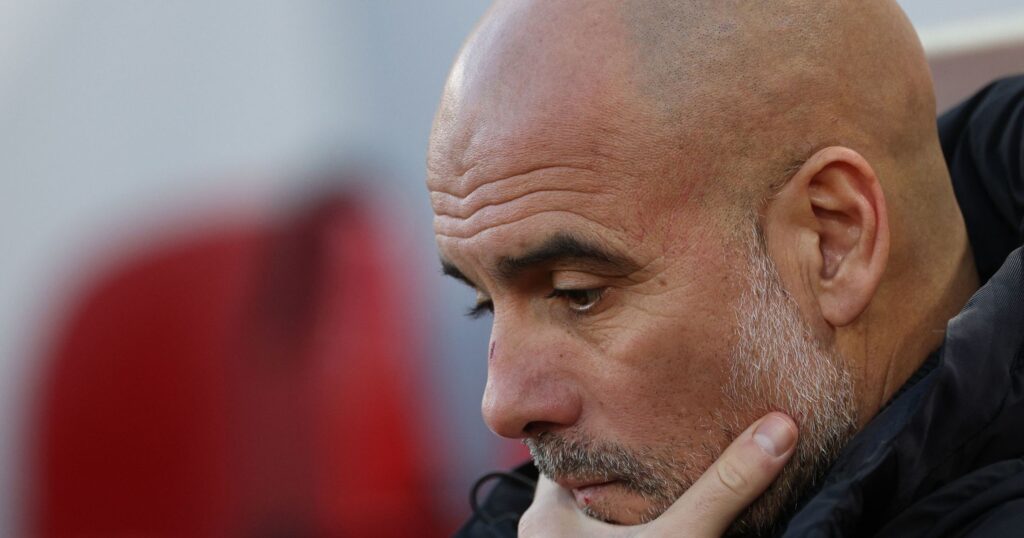On Thursday, the Premier League issued a significant announcement regarding sanctions imposed on Manchester City Football Club, fining them £1.08 million for repeated violations related to kick-off and restart procedures. In a previous instance, the club had already been assessed a hefty penalty of £2.09 million for breaching the same rules on 22 occasions. City had responded at that time by emphasizing that they had taken steps to “remind” both players and staff of their “responsibilities in complying with Rule L.33.”
The recent sanction involves a detailed breakdown of individual fines linked to the specific matches where the breaches occurred, as well as the durations of the delays that prompted the fines. The breaches identified were associated with several high-profile fixtures in which City played, both at their home ground and away. Notable matches that led to fines included encounters against clubs such as Southampton, Tottenham Hotspur, Nottingham Forest, Manchester United, West Ham United, and Newcastle United. Additionally, the away fixtures that contributed to the club’s fines were against Crystal Palace, Aston Villa, and Ipswich Town.
The first breach attributed to Manchester City occurred during their home game against Southampton, held on October 26, where the club was fined £40,000 for a delay of two minutes and ten seconds before the restart after halftime. Following Erling Haaland’s goal in the fifth minute of the match, City players returned to the pitch late for the second half. As a consequence of the infractions, the Premier League progressively increased the fines, starting from £20,000 for each subsequent breach until a significant jump in penalty amounts.
One notable incident encompassing two separate breaches occurred during the high-stakes Manchester derby against Manchester United on December 15. According to the sanction agreement, the start of this match was delayed by one minute and eighteen seconds, while the restart was delayed an additional two minutes and twenty-four seconds, marking the lengthiest individual delay of the season. For these breaches, Manchester City was fined a steep £125,000.
During this derby, City maintained their lead over Manchester United until the 88th minute, when a remarkable comeback led by Bruno Fernandes and Amad Diallo culminated in two goals for United, securing an unlikely victory despite City’s earlier dominance.
The most substantial fine issued to Manchester City amounted to £210,000, stemming from a two-minute and twenty-two-second delay at the restart of their away game against Ipswich Town on January 19. The Premier League articulated that adherence to rules concerning kick-offs and restarts is crucial for maintaining the professional standard of the competition, safeguarding the order and experience for both fans and participating clubs. It further stated that these protocols are essential to ensure that the broadcast of every Premier League match proceeds according to schedule.
As the specifics of the breaches unfolded, the Premier League made the details publicly accessible, illustrating the extent of the delays across various matches. These occurrences include the fines associated with matches against smaller clubs like Nottingham Forest and Crystal Palace, each contributing varying amounts to City’s cumulative fines. Noteworthy instances include:
– Southampton, October 26: 2 minute and 10 second delay to restart, £40,000 fine
– Tottenham Hotspur, November 23: 1 minute and 38 second delay to kick-off, £60,000
– Nottingham Forest, December 4: 1 minute and 59 second delay to restart, £80,000
– Crystal Palace, December 7: 1 minute and 29 second delay to restart, £100,000
– Manchester United, December 15: 3 minutes and 42 seconds delay, total £125,000
– Aston Villa, December 21: 2 minutes and 9 seconds delay to restart, £125,000
– West Ham United, January 4: 1 minute and 42 seconds delay to restart, £150,000
– Ipswich Town, January 19: 2 minutes and 22 seconds delay to restart, £210,000
– Newcastle United, February 15: 1 minute and 42 seconds delay to restart, £190,000
In closing, the situation underscores the Premier League’s commitment to upholding competitive integrity and ensuring that clubs adhere to regulations aimed at maintaining the flow and organization of matchday operations, a crucial aspect both for viewers and for the league’s reputation.



